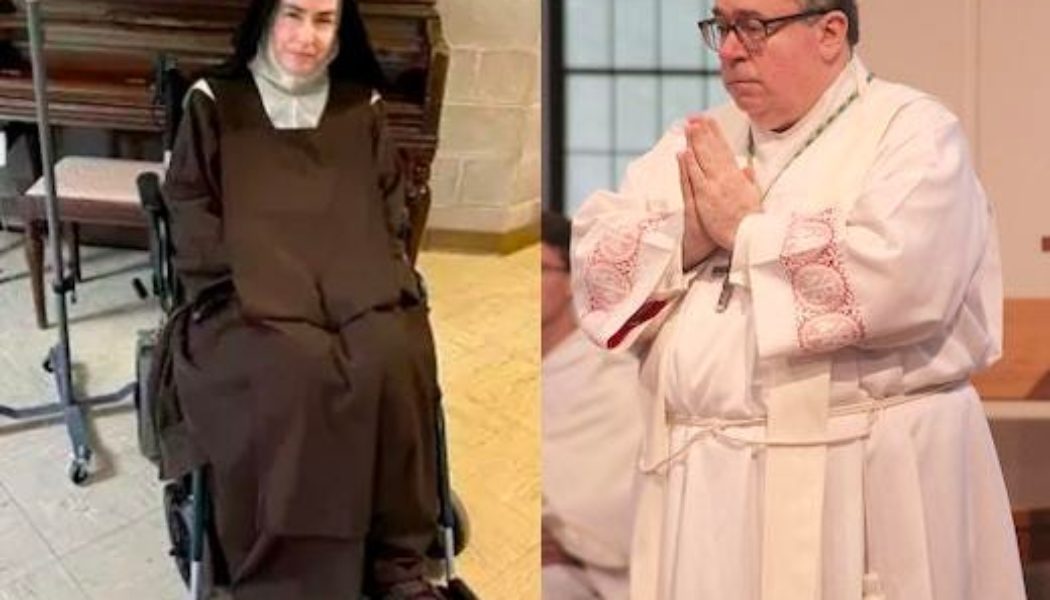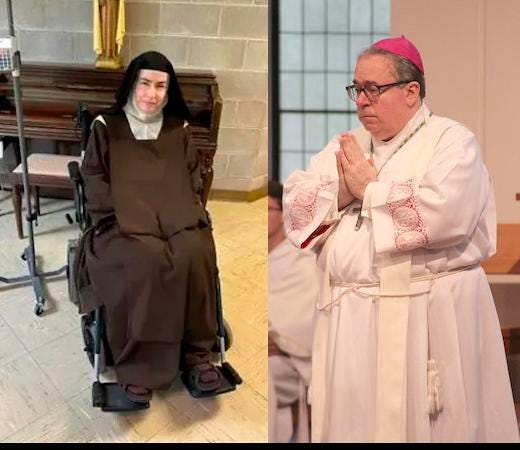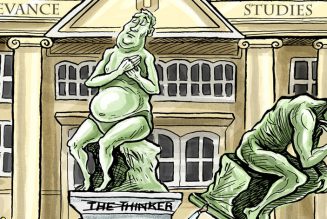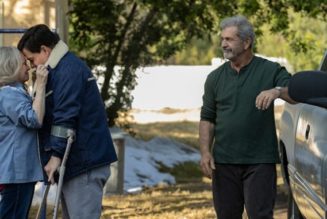As the latest chapter of a saga that began one year ago, the Vatican made a ruling last month in the case of the Arlington, Texas, Carmelites locked in a dispute with Bishop Michael Olson over allegations of sexual misconduct on the part of Mother Theresa Gerlach, who has been replaced by the Vatican as the community’s superior, even while the nuns at the Monastery of the Most Holy Trinity continue to recognize her as their superior.
Of course, anyone who has followed the twists of this story knows it’s not just about sexual misconduct — the saga has included allegations of drug use, lawsuits and restraining orders, and periodic statements from Archbishop Carlo Vigano, former apostolic nuncio to the U.S.
But while there is a great deal unresolved — and still unclear — in the Arlington, Carmel saga, the Vatican’s Dicastery for Institutes of Consecrated Life made a decision — made public this week — to nullify a decree from Olson, which expelled Mother Theresa Gerlach from the Carmelite order.
The Vatican’s move — even amid a complex set of circumstances — has garnered praise from many canon lawyers, who have argued for months that Olson’s decision to expel the community’s superior was without canonical basis in law.
And despite the controversy surrounding just about everything at the Arlington Carmel, the Vatican decision is likely to be hailed in some corners as a victory for due process protections in the canonical process.
—
Almost a year ago, on June 1, 2023, Olson issued a decree which said he had conducted an investigation, and found Gerlach guilty “of having violated the sixth commandment of the Decalogue and her vow of chastity with a priest from outside the Diocese of Fort Worth.”
Citing authority the Vatican gave Olson over the monastery, the bishop ordered Gerlach “dismissed from the Order of Discalced Carmelites in accord with cann. 695 §1 and 699 §2 CIC.”
The Pillar reported later that month that the priest involved in the case was Fr. Philip Johnson, a priest of the Raleigh, North Carolina diocese,.
In an interview tape made by the diocese, Gerlach admitted to Olson that she and the priest got “very close,” and then indicated that, “just twice, on the phone,” they had committed some unspecified sexual sin “over the phone” or “on video chat.”
The nun’s civil lawyer argued that Gerlach was under the influence of fentanyl and other heavy medications when she made that admission, shortly after undergoing a surgical procedure.
But canon lawyers noted a more pressing problem with Olson’s decree of dismissal.
Canon law establishes the possibility of criminal penalties for sexual activity which is coercive, public, or persistent, but does not establish that singular incidences of sexual conduct are always classified as canonical crimes.
The bishop’s June 1, 2023 decree did not specify what might classify Gerlach’s alleged sexual misconduct as canonically criminal, even while it cited some canonical norms which pertain to canonically criminal sexual activity, namely sexual misconduct involving force, threat, or abuse of office.
But the 2023 decree from Olson didn’t immediately suggest how Gerlach was alleged to have violated those norms.
In fact, canon lawyers advising the nuns told The Pillar last year that Olson’s lack of specificity made it especially difficult to understand Olson’s actions, or to understand if the bishop had other, as-yet-unspoken concerns about the monastery.
The Vatican’s April decree overturning Olson’s decision shed some light on the subject, and elucidated Olson’s apparent perspective on the matter.
The decree explained that Olson believed Gerlach had abused the authority of her office to commit an act of sexual misconduct.
“The argument advanced by the bishop claims that Mother Teresa Agnes abused her authority because, as Prioress, she had the unique privilege of having access to electronic means of communication, which allowed her to establish contact with her accomplice.”
But the Vatican did not find that argument convincing.
“This argument does not prove that the misuse of her exclusive access to a cell phone and the internet access constituted an abuse of authority perpetrated to coerce another person to perform a sexual act,” the dicastery explained.
The dicastery’s decree made clear how the Vatican understands the notion of abusing an office — not abusing some privilege, like internet access, but abusing authority itself.
“Mother Teresa Agnes possessed no real or even imagined authority over her alleged accomplice, a grown man (and ordained cleric) which could have made him subject to Mother Teresa Agnes’ authority as prioress.”
That the nun admitted to sexual misconduct “over the phone” does not “prove that these acts were perpetrated by the exertion of force or violence, or by her abusing her ecclesiastical authority as prioress,” the dicastery concluded.
Before it concluded, the dicastery flagged a significant procedural issue — namely, that the nun had not been given time to respond to canonical warnings before a penalty was imposed upon her. That would be enough to invalidate Olson’s decision, the dicastery said, leaving aside the substantial issues.
Many of the issues flagged by the Dicastery for Consecrated Life were flagged last year by canonists assessing the case.
But some expressed concern that the dicastery seemed inclined to ignore the issues raised, in order to affirm Olson’s authority to intervene in problems at the monastery. Indeed, on the same day it upheld Gerlach’s appeal on her dismissal, the dicastery did affirm Olson’s authority on several other elements of the case.
But that the dicastery took each piece of the case under separate consideration could be cause for optimism about the Vatican’s handling of complex appeals. While canonical processes are often accused of being co-opted these day by politics — and some high-profile cases seem to have suffered that fate — the Vatican decisions in the Gerlach case seem to reflect clear canonical reasoning, aiming both to recognize the authority of bishops as delineated in the law, and to recognize that same authority is not without limits.
In Arlington, all that might be moot, as the nuns of the city’s monastery are currently refusing admittance to their Vatican-appointed religious superior, setting the stage for a standoff that could lead to a declaration of schism. But for canonists and clerics concerned about the due process rights of accused priests and religious, the Gerlach case will be widely noted, mostly as a point of encouragement.
Comments 10
Services Marketplace – Listings, Bookings & Reviews










